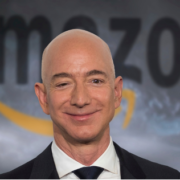The Regulation Effect
Locking horns with large cap technology companies in court is inconceivable for regulators in Washington.
Yes, it is their job to put out fires left, right, and center, but when the scorching inferno reaches full intensity, regulators hit the pass button.
Taking on an industry that employs an army of lawyers and data analysts up the wazoo is frightful.
Tech wants to make the skirmish into a resource fight and no cohort has more ammunition than these four companies.
They are already on the way to create more unregulated industries simply because they do not exist yet.
This is why regulators cannot keep up with the nimbleness on display by the tech industry.
They are always one, maybe two steps ahead.
Investors have been able to digest consequences of the data fiasco fueling an even more bullish narrative for the likes of Facebook (FB) and Alphabet (GOOGL).
Facebook and Alphabet are the two laggards in the vaunted FANG group, only because they are up against Netflix (NFLX) and Amazon (AMZN), two of the most transformational companies of the gig economy generation.
Facebook and Alphabet give traders entry points; Amazon and Netflix hardly ever.
Investors are hard pressed to find days when Amazon and Netflix drop more than 1%, and a brief respite is met with a torrent of new buying.
Even more of a head-scratcher is the American law etched into the books, calculating harm by connecting it with price increases, underscoring the FANG's dominant position.
It is almost impossible to prove caused "harm" because Alphabet and Facebook services are free. However, the free service is a misnomer, because of the extreme manipulation of data allowing tech titans to profit from data opportunities instead of charging customers a service fee.
The Mad Hedge Technology Letter has been rolling out a steady dose of Facebook recommendations since its inception to scintillating effect.
The Cambridge Analytica scandal stoked mayhem on the global news waves ravaging Facebook shares from $192 down to $153.
Investors were panicking and rightly so. A precipitous drop is nothing investors with skin in the game like to see.
The Mad Hedge Technology Letter saw it as a gift from the celestial stars and ushered subscribers into this suave stock at $168, to reread this memorable story please click here.
Facebook has gone from strength to strength blowing past expectations celebrating all-time highs of a recent intraday price of $207 earlier this week.
I am still highly bullish on Facebook, even more so after the first fines were doled out for the recent scandals.
Under the old data laws in Britain, Facebook was fined a grand total of $660,000 along with a detailed report from the Information Commissioner's Office castigating Facebook's business practices.
This amount is peanuts for Facebook, practically equaling the cost of providing a16-person security detail for CEO Mark Zuckerberg around his Palo Alto, California, estate for maybe two weeks.
If Facebook can hold down these fines to inconsequential amounts, regulation will be a decisive tailwind going forward.
How does a headwind turn into a tailwind in the blink of an eye?
General Data Protection Regulation (GDPR) rolled out in Europe lately has helped Alphabet and Facebook solidify their digital ad business.
Alphabet has adopted a stringent version of the rules to its new model because the behemoth does not need to take on the added risk of noncompliance.
Marginal companies do.
The possibility of exorbitant fines clearly grabbed the attention of Silicon Valley CEOs, and they have put the ball in motion to insulate themselves from such downside risk.
Unsurprisingly, Alphabet has a higher opt-in consent rate than its smaller tech brethren.
Users are more comfortably entrusting data to an Alphabet instead of a smaller unknown that could potentially be 10 times worse than Alphabet.
Uncertainty breeds risk aversion.
Recent data shows other companies have a galling time keeping up with the same percentage of consent as Alphabet.
You cannot expect a college basketball player to perform miracles like Steph Curry.
This puts Alphabet in a healthier strategic position as the users who consent are five times more valuable to digital ad exchanges and easier to monetize.
Other ad exchanges face an uphill battle against Alphabet if they cannot increase the rate of consent.
The extra premium is derived from the ability to personalize the advertisements boosting the conversion rate for sellers.
Alphabet has in effect increased its quality of data just by being Alphabet.
It is certainly not fair, but life is not fair.
And then there is the conundrum of where do you go if you do not want to sell on Alphabet or Facebook?
Well, Twitter (TWTR), Snapchat (SNAP), and Instagram (owned by Facebook) are the other alternatives fighting for the scraps.
The battle to get users to consent is really the be-all and end-all for many of these ad sellers.
Facebook and Alphabet have seen the best results and will likely extend their hegemony.
Recently, Alphabet has been offering 15% less ads on its exchange. But, it all involves consented users demonstrating the unenviable position for other exchanges to match Alphabet's quality.
The EU antirust watchdog is expected to levy a multi-billion dollar fine for abusing its dominant position of its Android operating system.
This comes on the heals of fining Alphabet $2.82 billion last year for abusing the dominance of a search again.
The stock barely budged on this news.
Alphabet's punishment for being too dominant in Europe is laughable.
When a company is punished for being too good then you sit back and admire from afar.
There is no other company that can undermine its position and even hit with billions in fines - its leadership status is unquestioned.
American readers sometimes forget the popularity of the Android ecosystem outside of America because of the ubiquitous nature of iPhones stateside. The network effect has made it impossible to do business in Europe without collaborating with the Android platform.
Facebook took more than eight years to reach a billion users but only half that time to reach the next billion.
The stock has held up relatively well. The 73% market share of digital ad dollars Facebook and Alphabet extracted in 2017 is up from 63% in 2015.
This two-headed monster shows no sign of abating, demonstrated by taking in 83% of all digital ad growth, leaving the crumbs for the rest.
They are specialists at exploiting their business environments, much like mining companies exploit the earth.
Their platforms are so influential, they turn elections on its head.
Governments are scared of taking them down, empowering these companies to new heights creating a massive halo effect worldwide.
The Chinese communist government has even used Chinese social media platforms to establish an Orwellian surveillance system monitoring its people at all times. Such is the power of technology these days.
Users are forced to accept any conditional terms they offer, because many jobs are reliant on these platforms such as the millions of app developers hustling to create the new hot app.
They all have families to feed.
On an individual level, people would not sacrifice a cushy income because they do not wish to consent to tracking services.
The next step is for the Amazons and Alphabets to ramp up their private label businesses using their high-quality treasure trove of data.
Amazon has been the leader in selling its own products from tech behemoths, and that percentage in terms of overall sales will increase over time.
It does not need others to sell products they can make themselves for cheaper, better quality retaining every cent.
Amazon's private label is geared toward decent quality and low prices capturing the volume of transactions desired.
Bundling services, exploiting the data, and applying discriminatory pricing will become the new normal for these powerful platforms and nobody does that better than Amazon.
It has no incentive to allow eyeballs, data and dollars to escape these proprietary walled gardens hence the term walled gardens.
Even more genius, Facebook and Alphabet can track users outside their walled gardens if they are signed into their Facebook or Google accounts.
Granted, Facebook has had better price action of late as traders understand there has been no lasting effect from the misuse of leaked data.
However, Alphabet has the crown jewel of the next leg up in A.I. (Artificial Intelligence) - Waymo. Waymo is a company I have chronicled in the past leading the race in autonomous driving inching closer to full-scale deployment sometime in the next year.
If you think Alphabet and Facebook shares are lofty now and "overbought," then I cannot imagine what you'll think when these companies dominate further because the runway is as far as the eye can see.
________________________________________________________________________________________________
Quote of the Day
"One machine can do the work of 50 ordinary men. No machine can do the work of one extraordinary man," - said American author Elbert Hubbard.







